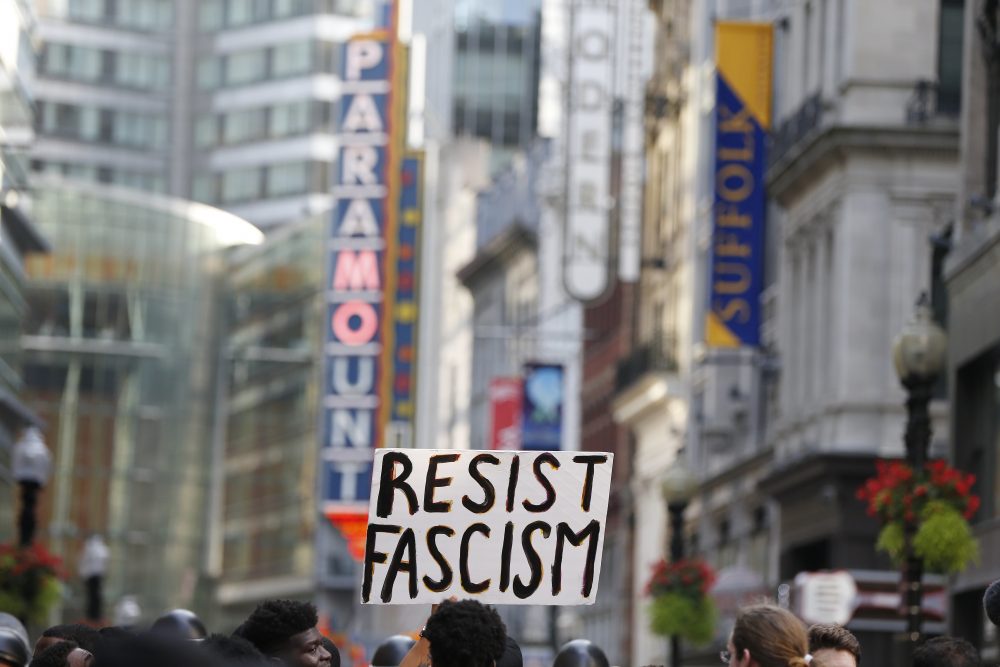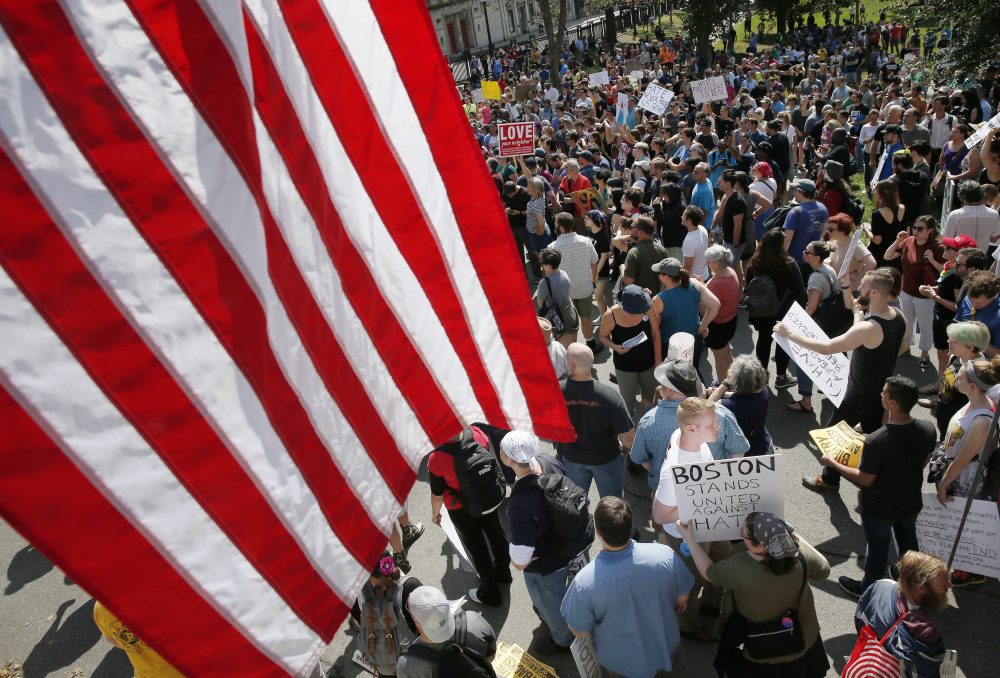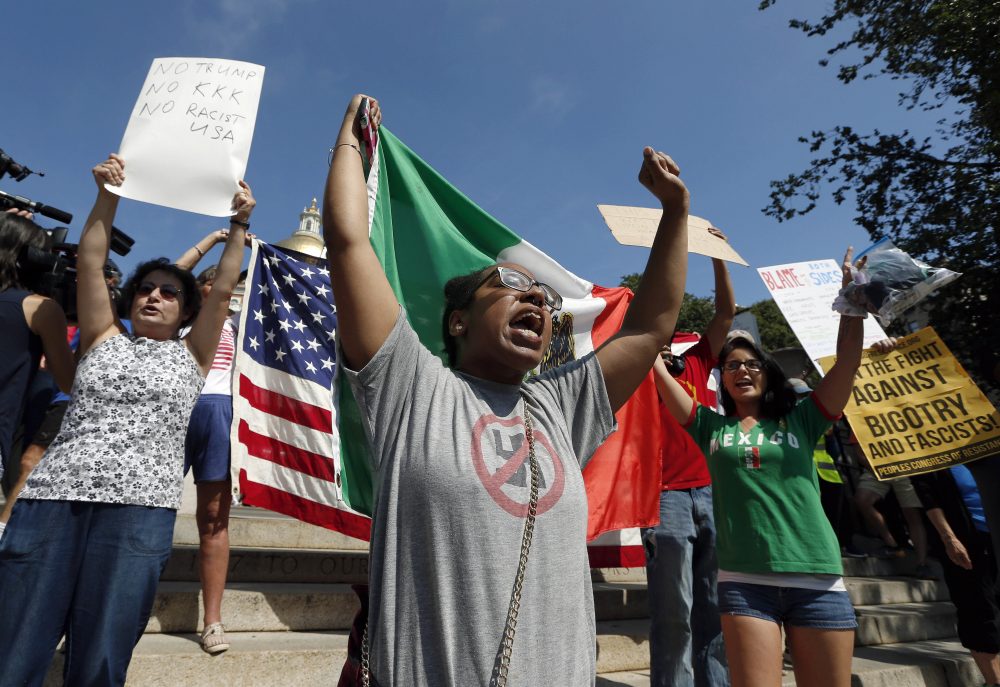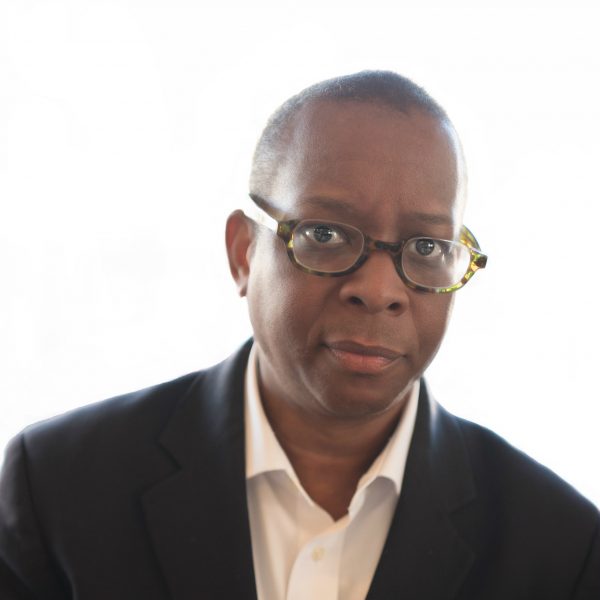Advertisement
COMMENTARY
In Boston, We Marched To Muffle The Voices Of Hate. Now What?

Kudos to the throng of Bostonians who marched this weekend to make a mockery of that motley band of moral nincompoops seeking to preach the poison of hate.
The thousands who marched from Roxbury to the Boston Common simply were not having the vitriol and violence experienced in Charlottesville a week earlier that led to fatalities and blood-spilling injuries. Instead, the Boston counter-protesters — mostly white — sufficiently muffled the voices of those conspiring to curse the humanity of others.
A magnificent victory was won over the weekend. But is that it? Were the acts of moral courage expressed by tens of thousands of counter-protesters worth only the satisfaction of witnessing the spiritually lame flee? Or is there a more substantive next chapter for us? What racial inequities — seen and unseen — require our local attention so that Boston becomes a model for the nation?
Clearly, Boston is an enlightened city. Its resources are vast. It is populated with a collection of first-rate colleges and universities. Its hospitals rank among the best in the world. Its innovation industries produce insights that enable marvelous efficiencies. The city’s residents come from all over the globe, bringing with them a rich variety of language, custom and creed.

But to move forward, we must first acknowledge that the racial problems in Boston persist — that our public and private spaces remain strategically segregated.
Sadly, the poor, blacks and Latinos live forcefully sequestered in the undesirable corners of the city. Boston neighborhoods resemble patterns of apartheid, fashioned into inhospitable divisions between the prosperous and the poor, the educated and the illiterate, the elite and the undesirable. They are citizens who are alienated and unable to lift themselves from inherited poverty and the shadows of social inferiority cast over their existence.
During any given year, young black, Latino and Cape Verdean men are more likely to be murdered on our streets than any other subgroup. A young black mother in the Mattapan neighborhood is more likely to live in poverty than her white counterpart either in Jamaica Plain or on Beacon Hill.
These realities reflect remarkable patterns of racism just as worthy of protest by thousands of marchers as the hate exported from outside rabble-rousers. The forms of systemic racism in Boston should lead the well-meaning marchers to question how we must now turn inward to deal with internal racial demons that harm us collectively.
Three practical actions should be considered by Bostonians who were courageous enough to march this weekend; these actions might address our desire to disable the racial hatred that unfortunately marks Boston.
First, whites and people of color must find ways to share perspectives on race, history, ideas and culture. Building multiracial geographic — as well as non-spacial — communities must come through willful engagement. Learning of the distinctions that define our differences will surely break down walls of misunderstanding, xenophobia and suspicion.

Second, institutionalize the salience of racial engagement and integration within all city public institutions. This might include enhancing the public school curriculum — from kindergarten to grade 12 — to ensure that each student is inculcated with the values of multiculturalism and the meaning of racial democracy. This means that we must also ensure that the public and private workforce in the city is integrated and reflective of its diversity. This goal might not be achieved overnight or fully, but it should be articulated as a common objective.
Third, rewrite the city’s charter in a way that so-called minorities in Boston are given fair opportunities in elections and equality in government. As it stands, members of the school committee are appointed by the mayor. People of color rely on the public schools disproportionately, yet are denied a voice in electing the committee's members. Minorities are also hampered by ward and precinct configurations that yield uneven election patterns and opportunities. The current maps of city council districts, for instance, fail to optimize electoral opportunities for people of color.
These are macro changes that can result in racial reversals on the micro level where people live, enjoy their families, friendships and the amenities of the city. Implementation of these ideas might yield greater understanding among citizens and maximize the civic capacities among so-called minorities.
In Boston, race matters. We displayed our capacity to reject the ugly face of racism this weekend. For this, we should be proud. But we must build upon this core strength to create even stronger communities that will truly make Boston a great city.
